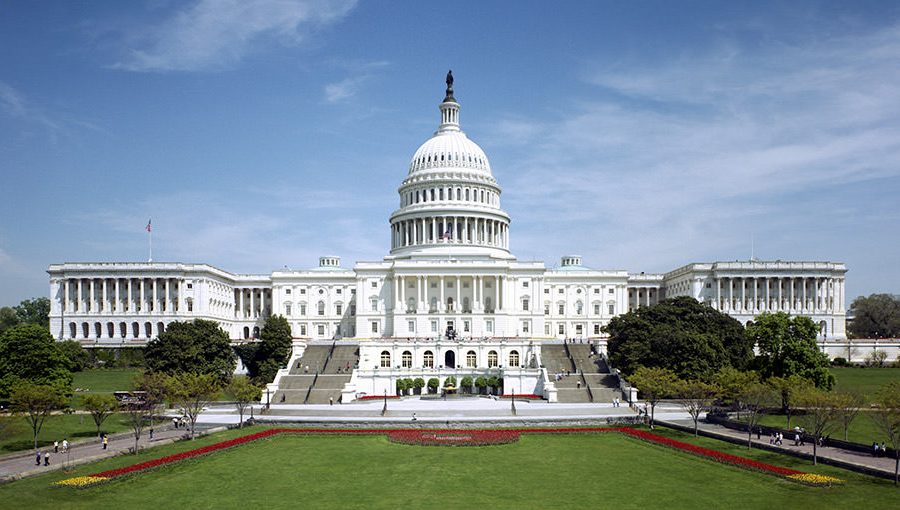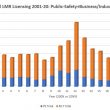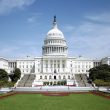Senate COVID-19 relief package does not address T-Band repeal, 911 items
U.S. senators unanimously approved a $2.2 trillion COVID-19 relief package late Wednesday, but the legislation does not include language that would repeal a mandate to auction T-Band spectrum or address 911-related issues that have been prioritized by public-safety officials, according to Beltway sources.
Having public-safety-communications language included in the Senate bill was a goal for many in public-safety circles, because getting legislation passed through a very partisan Congress has proven difficult in recent years. That was not included in the Senate bill, but public-safety sources indicated to IWCE’s Urgent Communications that they believe language associated with T-Band auction repeal, next-generation 911 (NG911) funding and a reclassification of 911 telecommunicators could be included in subsequent COVID-19 legislation.
Theoretically, the U.S. House could try to include wording for some of the public-safety issues as it is scheduled to vote Friday on the Senate legislation, but most Beltway sources indicate that the House is expected to approve the $2.2 trillion package in a straightforward vote with no changes to the Senate bill’s language.
Under the 2012 law that established the First Authority and dedicated 700 MHz spectrum to the public-safety broadband initiative, public-safety systems operating on T-Band spectrum (470-512 MHz) in 11 of the largest markets are supposed to move to other frequencies, so the FCC can begin to auction the airwaves to commercial users in 2021. After the auction, T-Band licensees are supposed to move their systems within two years, with the proceeds of the T-Band auction funding the migration of public-safety systems to other airwaves.
But many public-safety licensees that operate in the T-Band spectrum—TV channels 14-20—do not have available spectrum that can host their LMR system, if a move is required. Last year, a General Accounting Office (GAO) report cited New York, Boston and Los Angeles as examples of this issue. Even if new airwaves could be found, there likely would be a need for additional base-station sites, which would increase the relocation costs.
Last week, a group of government and public-safety entities sent a letter to key members of Congress, urging them to add language that would repeal the language requiring the FCC to auction T-Band spectrum.
“This [T-Band] spectrum allows 911 dispatchers to send first responders to people in need; EMS teams to speak to each other; and firefighters to call for mutual aid,” according to the letter. “Local public-safety agencies have used billions of dollars in federal, state, and local taxpayer funds over the past five decades to build T-Band systems that are interoperable and meet mission-critical voice requirements.
“It is expected to cost $5 to $6 billion for public-safety users to move off the spectrum, and auction proceeds are not expected to be sufficient to cover these costs. Of the 11 affected areas, five cities do not have alternative spectrum options.”
In addition, the letter notes that FCC Chairman Ajit Pai has stated that “moving forward [with a T-Band auction] is not viable.”
While there is consensus within the public-safety community that first responders should be allowed to continue LMR communications operating on T-Band spectrum, there have been some notable debates about how this should happen.
Extending the deadline associated with the current law is problematic, because it leaves all T-Band licensees—not just public-safety entities, but enterprise users that are not addressed in the 2012—in a state of limbo and incapable of making significant improvements to their systems.
A more definitive action—a T-Band repeal by Congress or a failed auction, which would be very possible under existing conditions—would clarify that existing licensees could remain on the spectrum and improve their LMR systems. This would be great news for most T-Band licensees, but it could prove to have an expensive impact on some.
Congress passed the T-Band auction mandate in February 2012, about 10 months before the FCC’s narrowbanding mandate—mandating that LMR systems below 512 migrate from 25 kHz channels to 12.5 kHz channels—became effective. The FCC ruled that T-Band licensees would not have to adhere to the narrowbanding rules, because they presumably would be vacating the spectrum within a decade under the existing law.
One lingering question is: If T-Band licensees are allowed to remain on the spectrum, would the FCC require them to meet the narrowbanding mandate that was enforced throughout the rest of the country? For the New York Police Department, narrowbanding its system was going to cost at least $150 million at the time of the original deadline.
An FCC spokesperson confirmed to IWCE’s Urgent Communications that the agency has not expressed any position on the narrowbanding question, if the outlined scenario became reality.
Elsewhere on the public-safety landscape, the approved Senate COVID-19 bill does not include language that would classify 911 telecommunicators as first responders. Known as the 911 SAVES Act in standalone bills, the legislation has 129 co-sponsors in the House and 28 co-sponsors in the Senate–with bipartisan support in each case. However, this legislative language does not have the funding implications that most other items in the Senate COVID-19 bills, and some critics have expressed concern that it could increase costs for local and state entities that fund 911.
Long-awaited federal funding for NG911 also was left out of the Senate package, despite the key roles that 911 centers are playing in the COVID-19 response effort. There is existing legislation that would allocate about $12 billion toward implementing NG911 nationwide, based on a cost study conducted about three years ago.
A new coalition of public-safety groups focused on NG911 recently began meeting in an effort to reach a consensus around key aspects of NG911, including some areas that were not addressed in existing legislative language.
Multiple public-safety sources expressed optimism that NG911 funding and other public-safety priorities could be included in future COVID-19 relief legislation that already is being contemplated on Capitol Hill.















